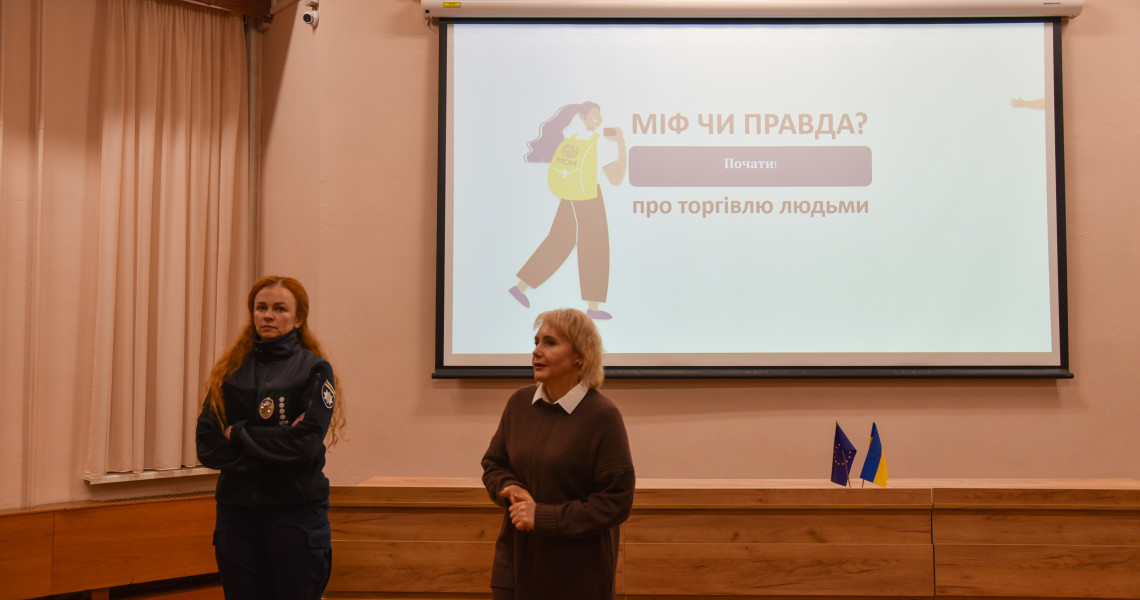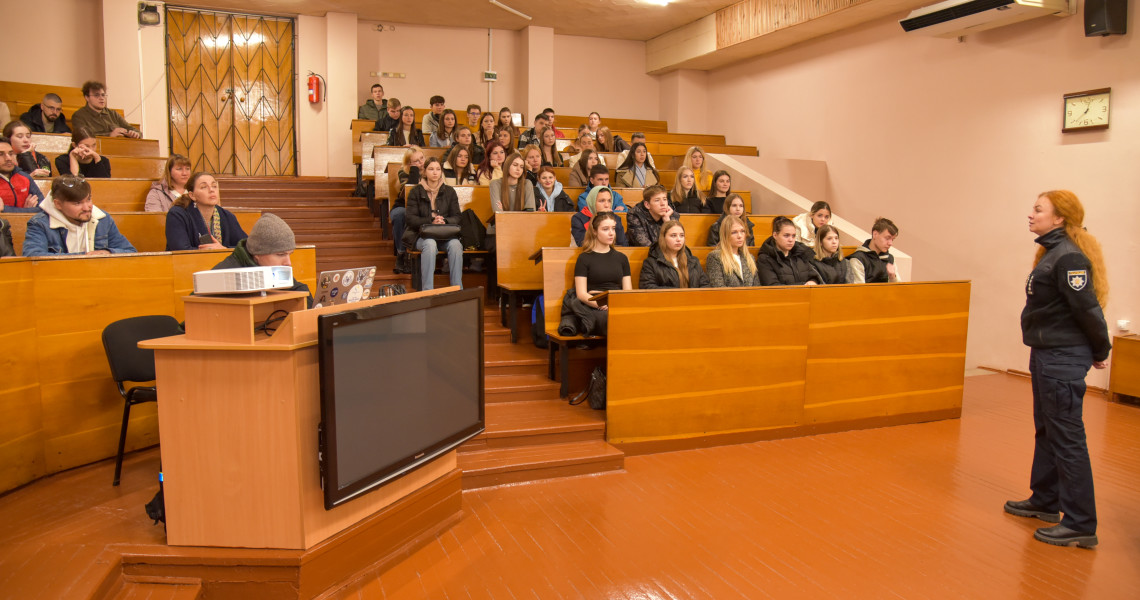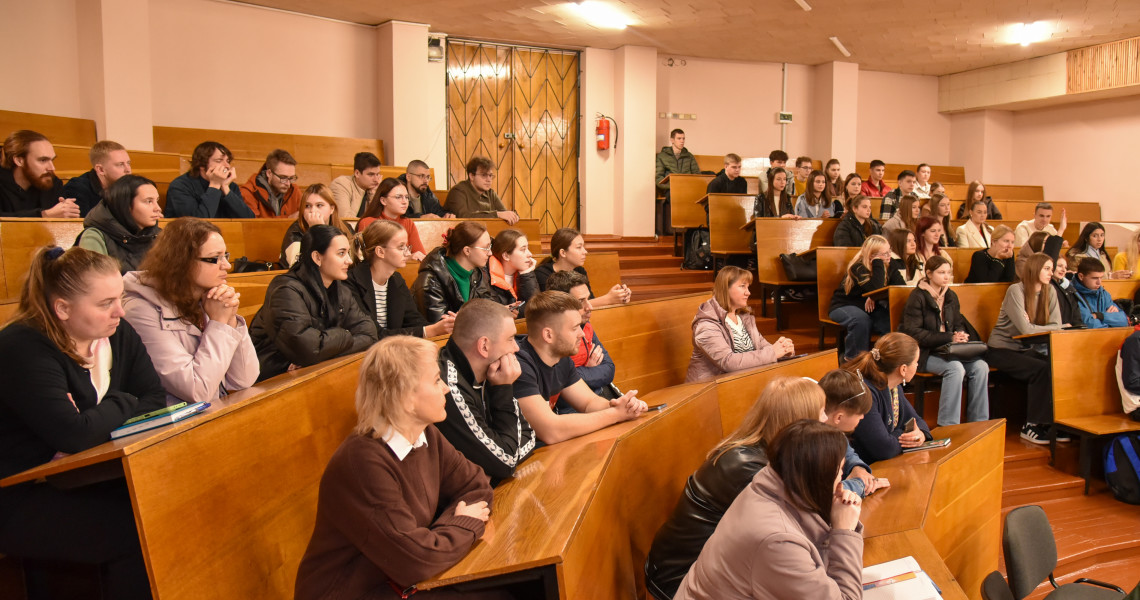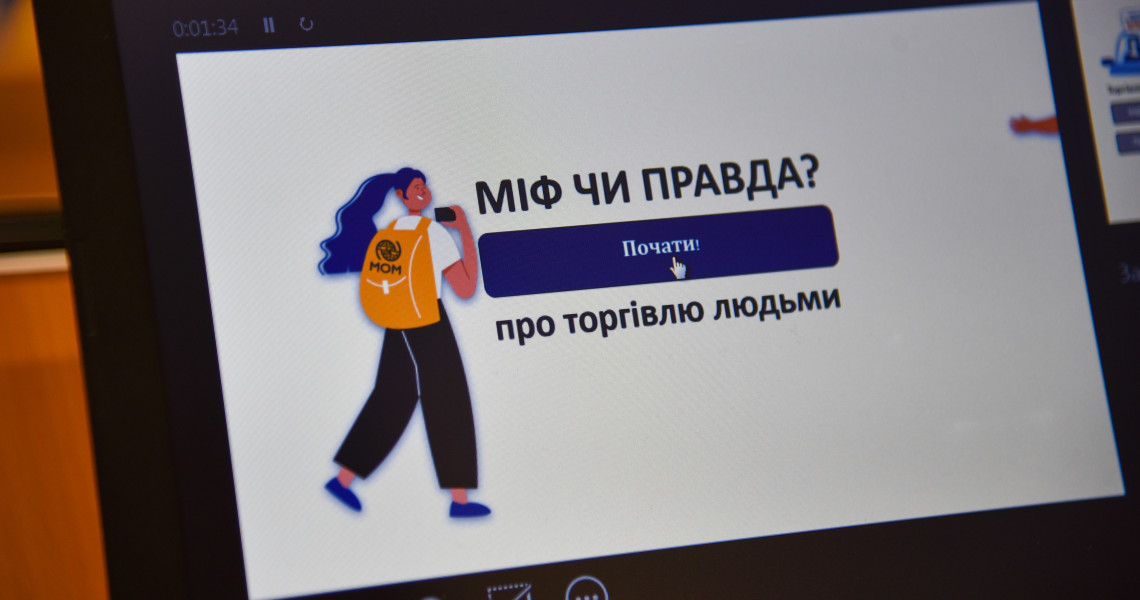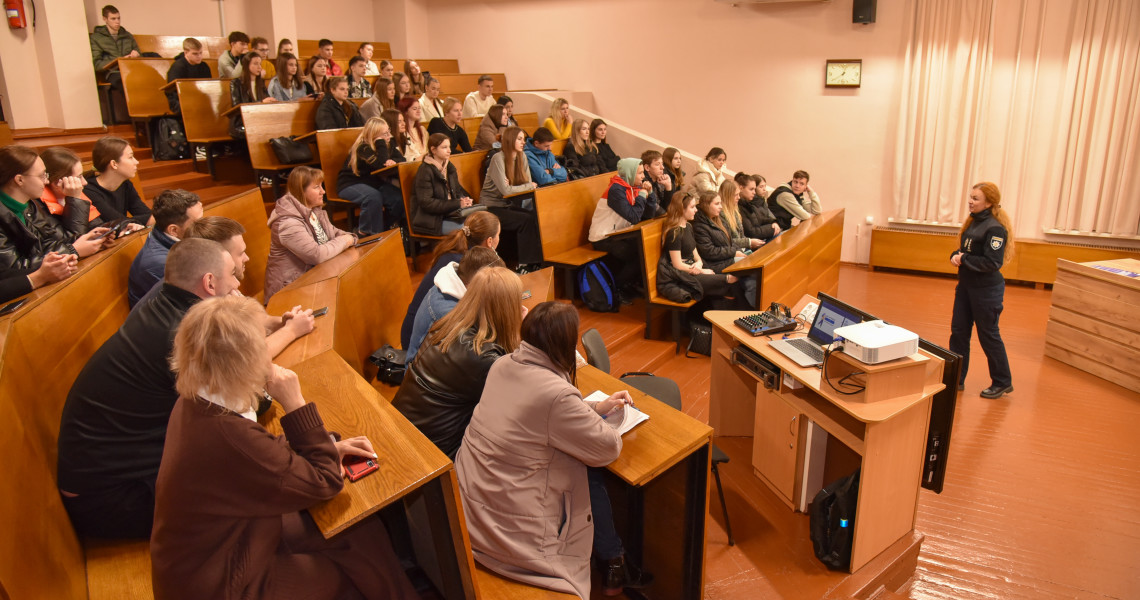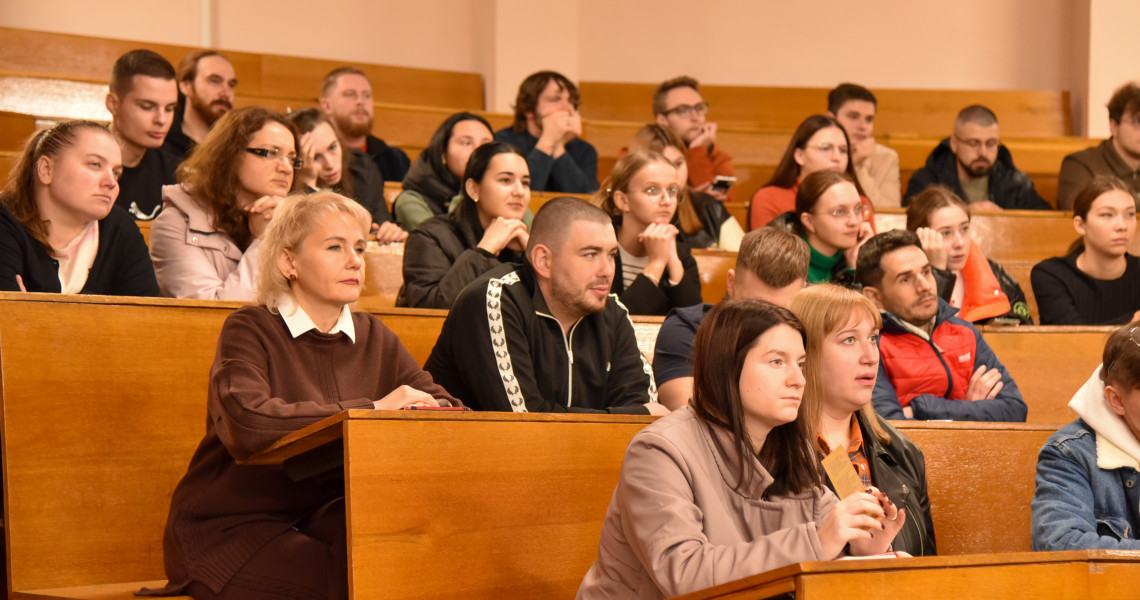Щорічно 18 жовтня в Україні відзначається Європейський день боротьби з торгівлею людьми, і в умовах війни ця проблема стає ще гострішою. За ініціативи відділу управління освітньо-виховною та гуманітарною роботою з молоддю ПДМУ студенти-медики стали слухачами лекції на тему торгівлі людьми. Начальниця відділу зв’язків з громадськістю управління патрульної поліції в Полтавській області Марина Зінюха вкотре нагадала молоді про різні форми сучасного рабства, які відбуваються як усередині країни, так і за її межами.
Лекторка спростувала стереотипи та упередження стосовно торгівлі людьми і надала корисні поради щодо того, як убезпечити себе від подібного насильства. Зокрема, акцентувала увагу на важливості перевірки інформації про потенційних роботодавців, партнерів або організацій, які пропонують послуги працевлаштування або навчання. Також слухачам було запропоновано онлайн-гру, яка допомагає розпізнавати потенційні загрози торгівлі людьми та навчитися уникати їх через інтерактивний досвід. Студенти активно брали участь у дискусіях, відповідали на запитання та разом з фахівчинею розбирали реальні випадки, пов’язані з торгівлею людьми.
Загалом лекцію відвідали студенти І та ІІ-го курсу стоматологічного факультету, слухачі Навчально-наукового медичного інституту, викладачі ПДМУ, аспіранти та студенти Фахового медико-фармацевтичного коледжу.
How to avoid becoming a victim of human trafficking: a lecture from the patrol police for PSMU
Every year on October 18, Ukraine celebrates the EU Anti-Trafficking Day, and in times of war, this problem becomes even more acute. At the initiative of the Department for Educational and Humanitarian Work with Youth of PSMU, medical students attended a lecture on human trafficking. Maryna Ziniukha, Head of the Public Relations Department of the Patrol Police Department in Poltava Region, once again reminded the youth of the various forms of modern slavery that occur both inside and outside the country.
The lecturer refuted stereotypes and prejudices about human trafficking and provided useful advice on how to protect themselves from such violence. In particular, she emphasized the importance of verifying information about potential employers, partners, or organizations offering employment or training services. The students were also offered an online game that helps them recognize potential threats of human trafficking and learn how to avoid them through interactive experience. The students actively participated in discussions, answered questions, and together with the expert analyzed real-life cases of human trafficking.
In total, the lecture was attended by the first- and second-year students of the Faculty of Dentistry, students of the Medical Education and Research Institute, PSMU academic staff, PhD students and students of the Professional Medical and Pharmaceutical College.






